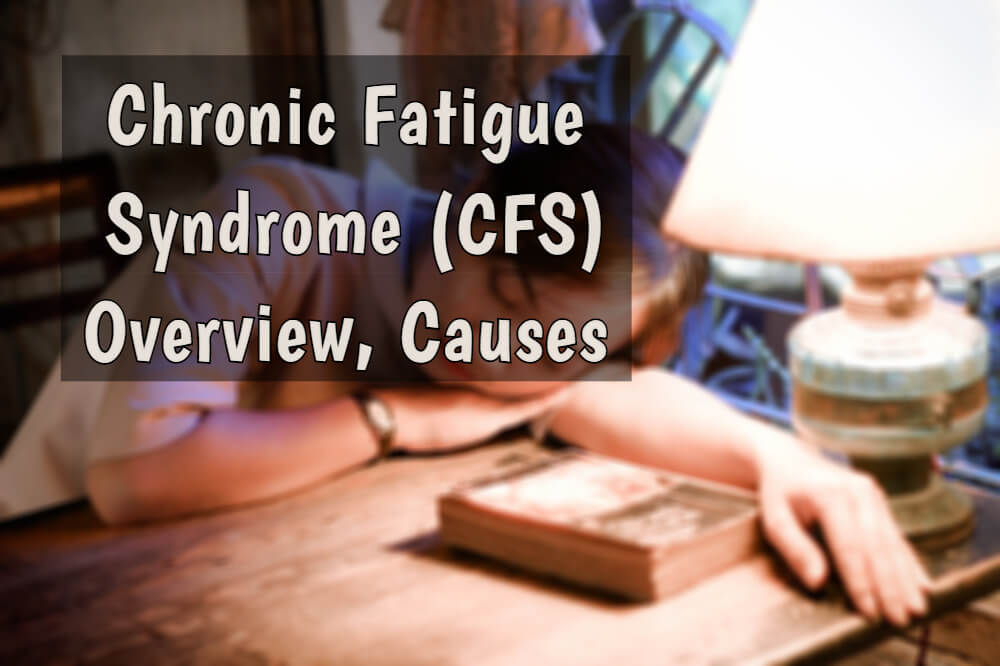Chronic Fatigue Syndrome (CFS) Overview, Causes
by | Last Updated
Chronic Fatigue Syndrome (CFS) is a debilitating disorder, with the main symptom being constant severe fatigue that isn’t improved after sleep and isn’t caused by any health problem.
In fact, medical science cannot yet clearly answer what chronic fatigue syndrome is and why it appears in some people.
But some theories do exist, as well as some ways to treat it.
Keep reading to learn more.
What Causes Chronic Fatigue Syndrome in Adults?
The exact causes of chronic fatigue syndrome have not yet been discovered, but there are several theories about pathologies that make a person more susceptible to this condition:
- viral infection (Epstein-Barr virus, rubella, herpesvirus type 6 and some others are associated with an increased risk of developing CFS);
- immunodeficiency and complications of autoimmune diseases;
- chronic stress;
- hormonal disorders.
Some sleep disorders can also lead to the development of chronic fatigue. This may include obstructive sleep apnea, a delayed sleep phase disorder, hypersomnia, and even nightmares.
Main Chronic Fatigue Syndrome Symptoms
Along with severe permanent fatigue, there must be at least 4 of the following signs to diagnose CFS:
- PEM or Post-Exertional Malaise — worsening of symptoms after any physical or mental work;
- muscle or joint pain without swelling or redness;
- presence of chronic insomnia or other sleep disorders;
- severe excessive daytime sleepiness;
- enlarged lymph nodes in the neck and armpits area;
- frequent sore throat;
- frequent headaches;
- memory impairment and decreased ability to concentrate.
The severity of symptoms can vary from day to day, or even within the same day, which make the diagnosis more difficult.
How Is Chronic Fatigue Syndrome Diagnosed?
As of now, there are no standard lab tests for chronic fatigue syndrome yet. Usually, specialists try to eliminate possible somatic conditions with similar symptoms, such as:
- lupus;
- hypothyroidism;
- fibromyalgia;
- mononucleosis;
- Lyme disease;
- major depressive disorder.
It is possible to diagnose the degree of daytime sleepiness linked to CFS using the Epworth Sleepiness Scale. However, more specific studies needed along with this survey in order to clarify if it’s not tied to another sleep disorder.
A person will more likely be diagnosed with CFS if the following criteria are met:
- the fatigue is extreme and persistent and does not allow a patient to fully work and enjoy their favorite things and hobbies;
- the fatigue state lasts at least 3 (for children and adolescents) or 6 months (for adults);
- there are no other somatic diseases that affect fatigue;
- it is impossible to identify the cause of fatigue.
Diagnosis may take time, so it is recommended that you find a specialist you trust so that he can track the effect of prescribed medications on your symptoms.
Chronic Fatigue Syndrome Treatment
Unfortunately, there’s no medication for chronic fatigue syndrome, so therapy is based on the eradication of symptoms and improvement of the patient’s quality of life:
- Addressing PEM. It is recommended to find your limits for physical and mental work and balance them with resting in order to avoid PEM outbreaks. The specialist may advise you to keep a diary of activity for several weeks in order to better understand these limits.
- Lifestyle changes. Most often, physicians recommend limiting caffeine intake and reviewing your sleep hygiene.
- Medications. The use of drug therapy is aimed at reducing the associated symptoms (for example, painkillers for joint and muscle pain) or the elimination of underlying pathologies (antidepressants for depression).
Alternative and complementary medicine in some cases can also be useful for reducing pain and relaxation, but consultation with a specialist is obligatory before using them.





No Comments